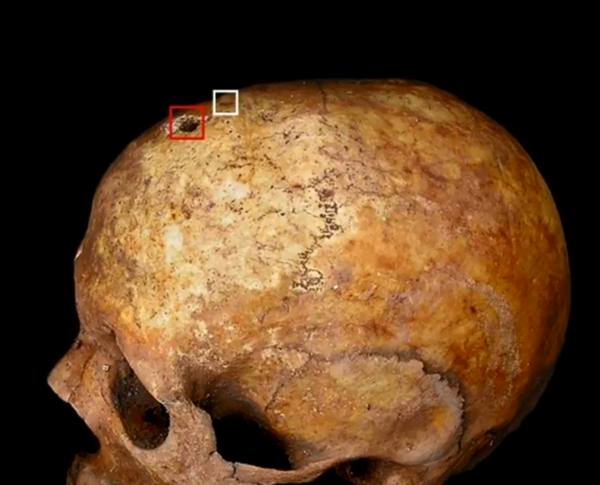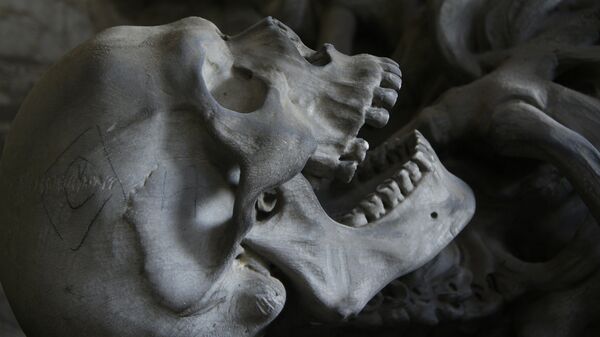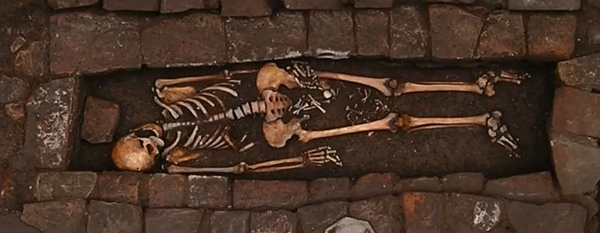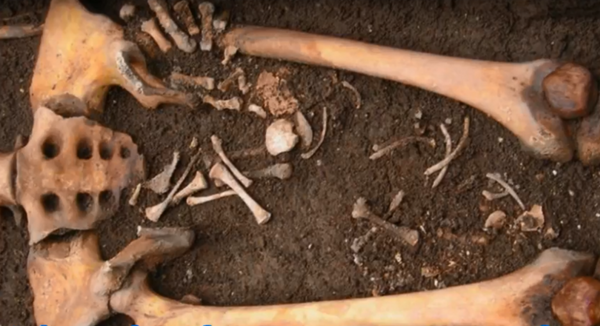The study, dubbed "An Unusual Case from Medieval Italy," explains that the shocking discovery was an example of a "coffin birth." This, according to archaeologists, occurs when a unborn child is expelled from a mother's womb by posthumous gases.
Officials from the University of Ferrara and the University of Bologna later determined that the mother was likely in her mid-20s to 30s and was at the end of her pregnancy when she died and was buried. After taking note of the baby's leg measurements it was revealed that the child was near the 38th week of gestation.
"I suspect that what happens is the pressure from the gas builds up and the dead fetus is delivered through a rupture," Jen Gunter, an OB/GYN working in the San Francisco area, told Forbes. "It basically blows a hole through the uterus into the vagina, as the vagina is much thinner than the cervix."
But the rare find wasn't the only thing that caught the attention of the researchers. As it turns out, the mother's skull contained an odd 4.6 mm circular hole which officials believed was an example of a brain surgery technique from the Middle Ages called trepanation.

During the Middle Ages, surgeons looked to trepanning as a way to release pressure built up in a patient's skull. As the woman's skull showed signs of bone healing, researchers speculated that the woman had been alive for roughly a week after the procedure was carried out.
"Our hypothesis is that the pregnant woman incurred preeclampsia or eclampsia [two pregnancy conditions involving high blood pressure] and she was treated with a frontal trepanation to relieve the intracranial pressure," the study read, according to Live Science. "Despite the intervention, she did not survive, and died with the fetus in her womb."
Speaking to Gizmodo, Alba Pasini, a co-author of the study, indicated that the cause of death could not be determined for the woman as it could have been a result of either the brain procedure or complications that arose from her pregnancy.





